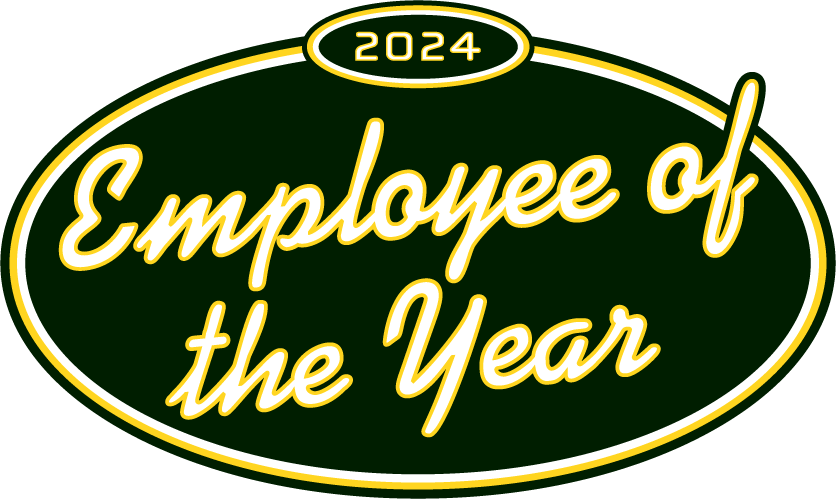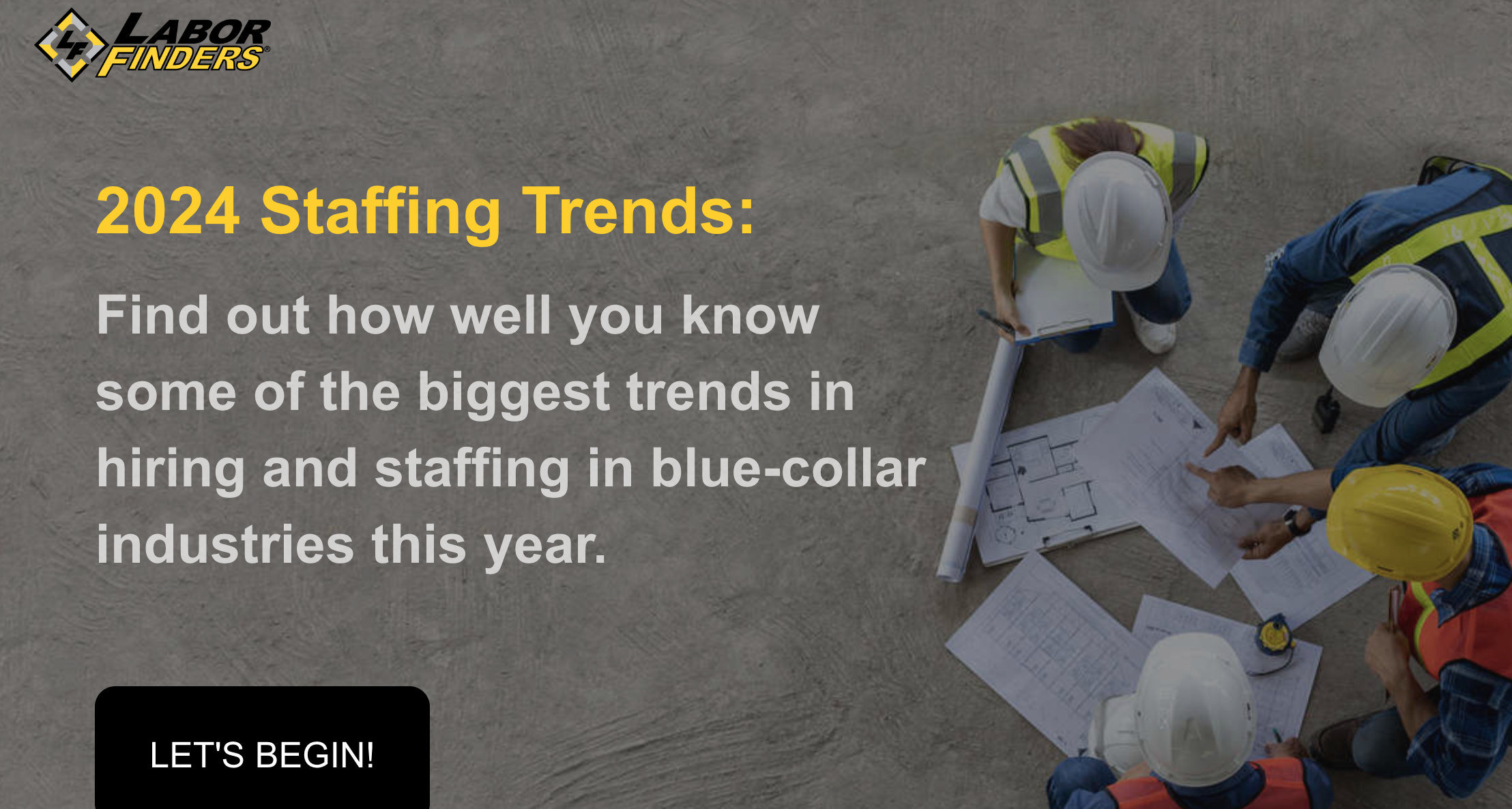-
Job Seekers
X
Job Seekers
Whether you're looking for a temp job or a permanent career, Labor Finders has you covered!
-
Explore
- How it works
- Industries
- Blog
- Locations
- Job Search
You May Also Be Interested In

2024 Employee of the Year
Learn more about our amazing Employee of the Year
-
-
Employers
X
Employers
Let us help you find the workers you need, when you need them.
You May Also Be Interested In

2024 Staffing Trends Quiz
Construction Staffing Trends Quiz
-
Industries
X
Employer Industries
Ready to staff your next project? Our staffing experts has the knowledge and the workers to cater to your unique staffing needs.
In this Section:
Job Seeker Industries
From construction to waste management, we have job openings in whatever industry you’re interested in.
In this Section:
-
About
X
About You
Getting matched to the right job, gaining the flexibility you want, making an impact in your community - at Labor Finders, it’s all about you!
-
You may also be interested in
- About Us
- Job Search Results
- Find an Office
- How it works
- Blog
About Us
With almost 200 offices nationwide, we’ve been putting people back to work for over 40 years. See why we’re a leader in the blue-collar staffing industry.
-
You may also be interested in
- About Us
- Media Center
- Video Library
- Leadership Team
- Careers
- In The Community
- History
-
- Location
Staffing Trends
Is College Recruiting the Answer to Your Skilled Labor Shortage?

If finding quality workers is on top of your to-do list but you’re worried about not being able to find them, you’re in good company. According to Indeed, 61% of the employers they surveyed plan to hire more workers than they did last year. However, 42% of them feel they won’t be able to do so. Experiencing full employment and a never-ending skills gap can only make you feel even more anxious about finding workers.
Many companies are diving into college recruitment as an answer to the skilled labor shortage. But is it for you?
If you’re looking for a solution that builds a talent pipeline that will benefit your company in the long-term, then it could be a viable option.
Benefits of College Recruiting
Although skilled workers are what managers like you are after, there are benefits to hiring college students. For one, they can be easier to manage than experienced workers. While they may require more training and supervision up front, in the long run, you can mold them into the people that fit your business. College students come ready to learn and unlike seasoned workers, have no old work habits that need to be broken.
Another benefit to hiring college students is having workers that are quick learners. A school environment has conditioned them to absorb knowledge and put it into practice as fast as possible. They also know how to work faster, multi-task efficiently, and work long hours as they are less likely to have outside commitments that can take away from work productivity. Given the chance to move up, they are also willing to take on more responsibility for the chance to advance in your organization.
Types of College Recruiting Programs
Now that you’re ready to invest in hiring college graduates, the next step is to find out which type of college recruiting program is best for you and your company goals.
Internships
Perfect if you’re on a tight budget, need workers, and not afraid to train, hosting a college internship program may work for you. College students who sign up for this type of recruiting program are looking to get hands-on experience that will further their career – even if means doing it for free. This recruiting program is ideal for short-term hiring needs.
Apprenticeships
Apprenticeships on the other hand are a more formal and long-term type of college recruiting program. They’re geared toward the skilled jobs you’re building a talent pipeline for. College students getting into this type of program are looking to supplement their education with paid on-the-job training.
The Role of Social Media
College students are spending more time on their social media accounts than in the classroom. That’s why it’s important to invest time in creating and maintaining your online employer brand. But it’s not enough to just post descriptions about your job opportunities on Facebook and Twitter. Today’s generation of future workers want to learn about your company culture and values, and how you’re giving back to their community. They want to see what it’s really like to work at your company, evidenced by video and photos. College students also want to know what you can do for them and how you can help them launch their careers. These are things to keep in mind when posting content to your social media pages.
From college grads to skilled workers, we’ve developed an extensive network of people who are ready to get back to work. Find out how we can help you!















